Which of the following are diastereomers ?
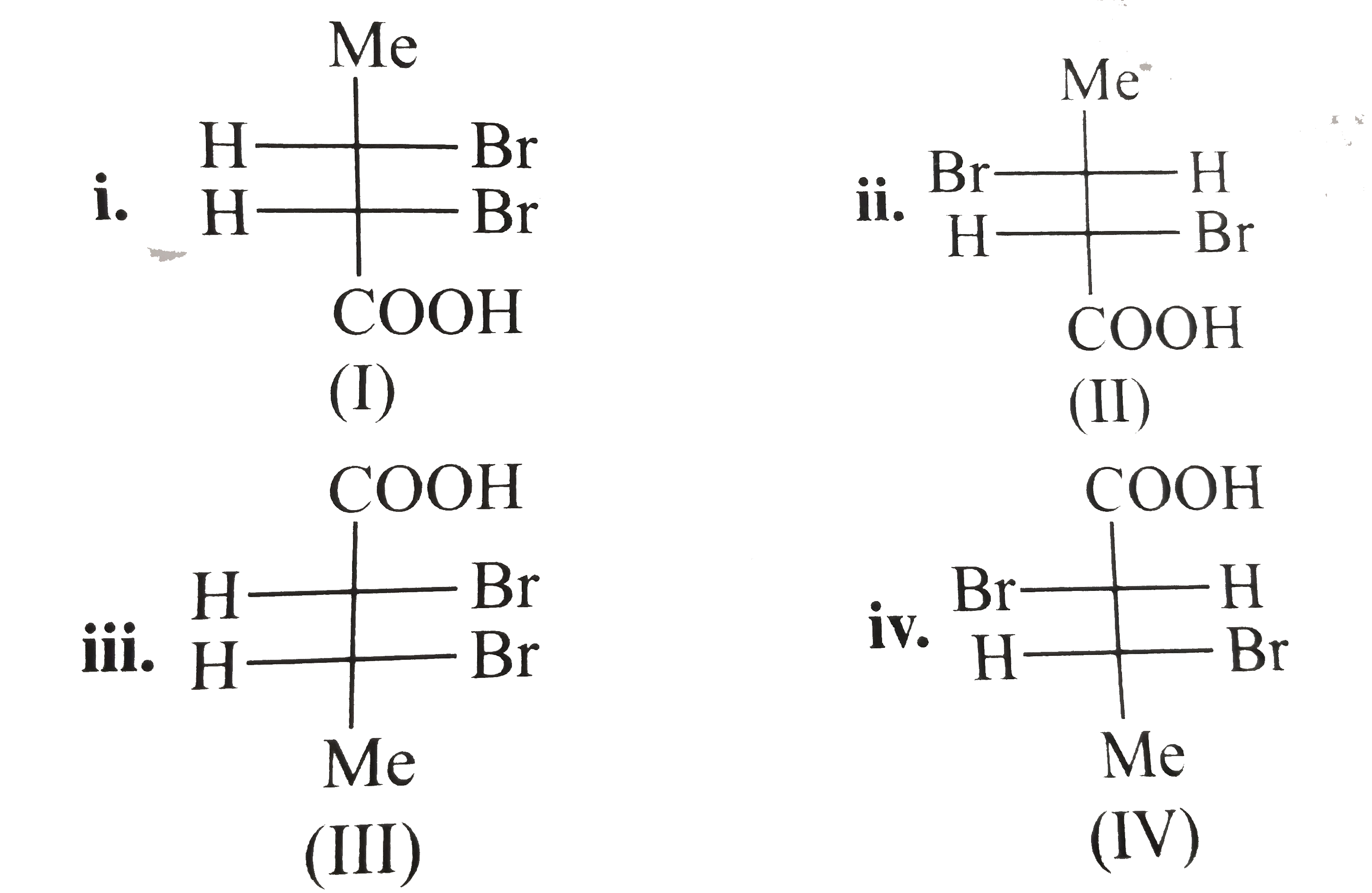
(I)and(III)
(II)and(IV)
(I)and(II)
None
The correct Answer is:C
The Fischer projection of (I)and(II) is wrong because the functional group is not at the top. On rotating (I)and(II) by 180∘. They are represented as shown:
(I) 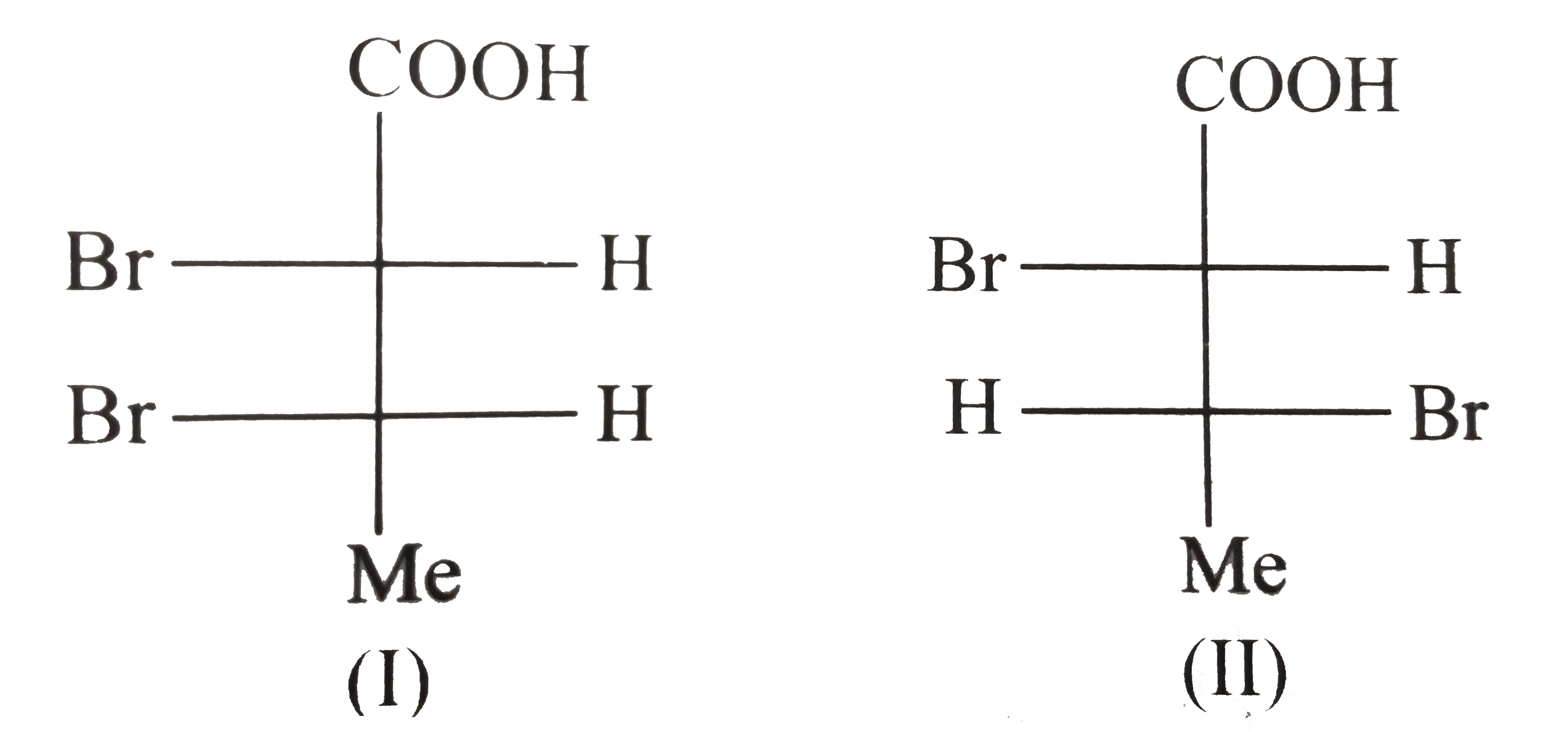
Now, compare I,II,III, and IV
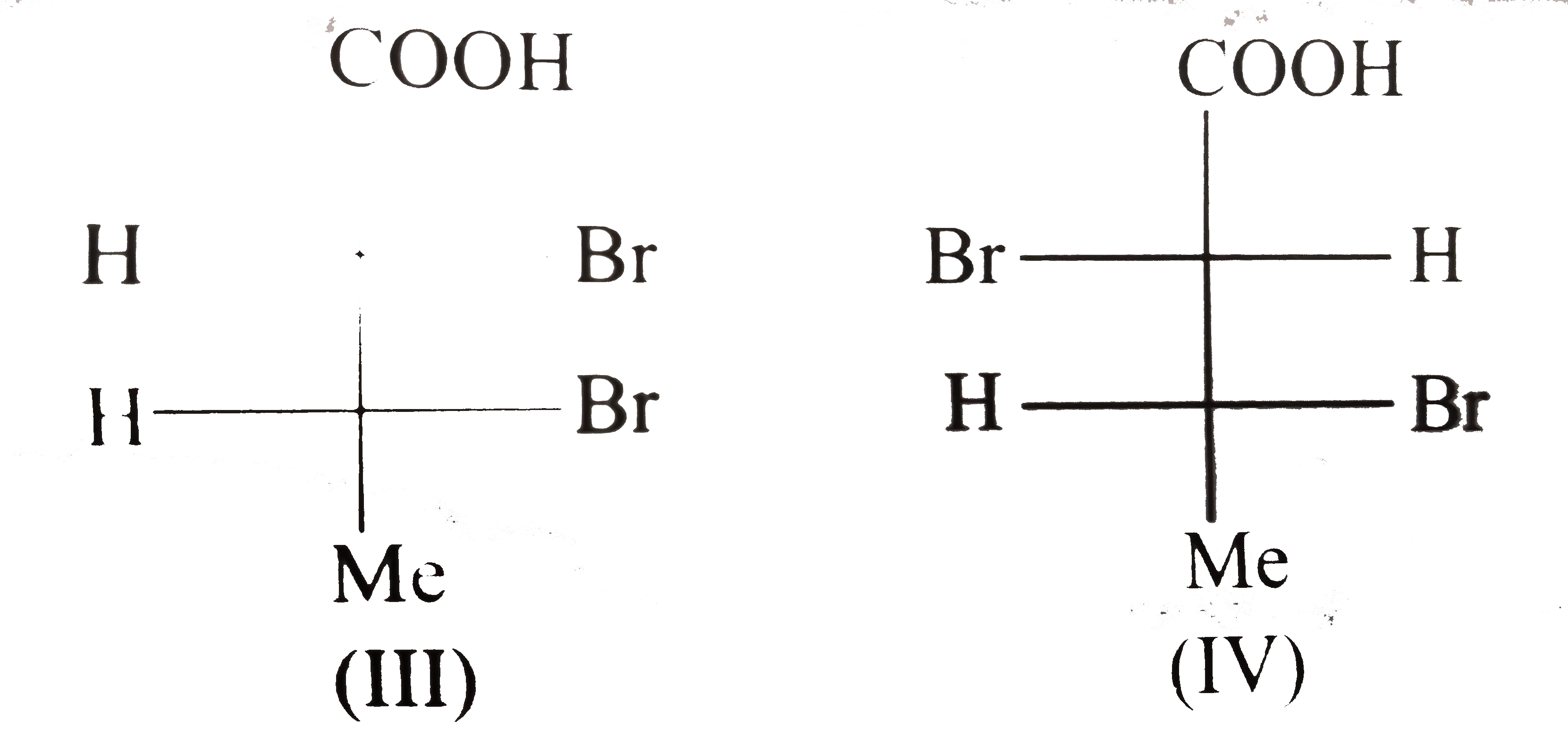
(I)and(III)⇒ Enantiomers
(II)and(IV)⇒ Identical or same
Therefore, the pairs of diastereomers are:
(I),(II),(I),(IV) , and (II),(III)
But the answer given is (C)(I,II).
Topper's Solved these Questions
- ISOMERISMBOOK - CENGAGE CHEMISTRY ENGLISHCHAPTER - ISOMERISMEXERCISE - Assertion-Reasoning Type (Exercise)
5 Videos
- ISOMERISMBOOK - CENGAGE CHEMISTRY ENGLISHCHAPTER - ISOMERISMEXERCISE - Fill in the blanks (Exercise)
3 Videos
- ISOMERISMBOOK - CENGAGE CHEMISTRY ENGLISHCHAPTER - ISOMERISMEXERCISE - Single correct answer type
13 Videos
- IONIC EQUILIBRIUMBOOK - CENGAGE CHEMISTRY ENGLISHCHAPTER - IONIC EQUILIBRIUMEXERCISE - Archives Subjective
28 Videos
- NCERT BASED EXERCISEBOOK - CENGAGE CHEMISTRY ENGLISHCHAPTER - NCERT BASED EXERCISEEXERCISE - Chemical Equilibrium
73 Videos
Similar Questions
Knowledge Check
Which one of the following is a diastereomer of (R)-4-bromo-cis-2-hexene ?
A(S)-4-bromo-cis-2-hexeneB(S)-5-bromo-trans-2-hexeneC(R)-4-bromo-trans-2-hexeneD(R)-5-bromo-trans-2-hexeneR, S-configuration is a useful tool for determination of enantiomers, diastereomers and homomers. If configuration of all chiral centers are opposite then structures are enantiomers, if all chiral centers have same configuration then they are homomers and if some have same configuration and some have opposite configuration then they are diastereomers.

Which of the following is not diastereomer?AI and IIIBII and IVCI and IVDIII and IVVladimir Markovnikov rule : Alkenes undergo electrophilic addition reactions. It is triggered by the acid acting as a electrophile toward t-electrons of the double bond. Markovnikov's rule states that when an unsymmetrically substituted alkene reacts with a hydrogen halide, the hydrogen atom adds to the carbon that has the greater number of hydrogen, e.g.,
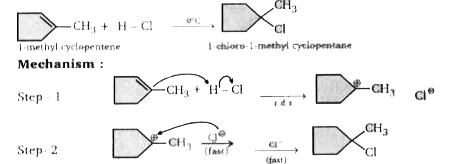
In which of the following reactions, diastereomers will be formed ?A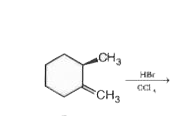 B
B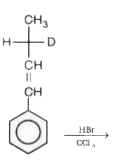 C
C DAll of these
DAll of these
Consider the following reactions :
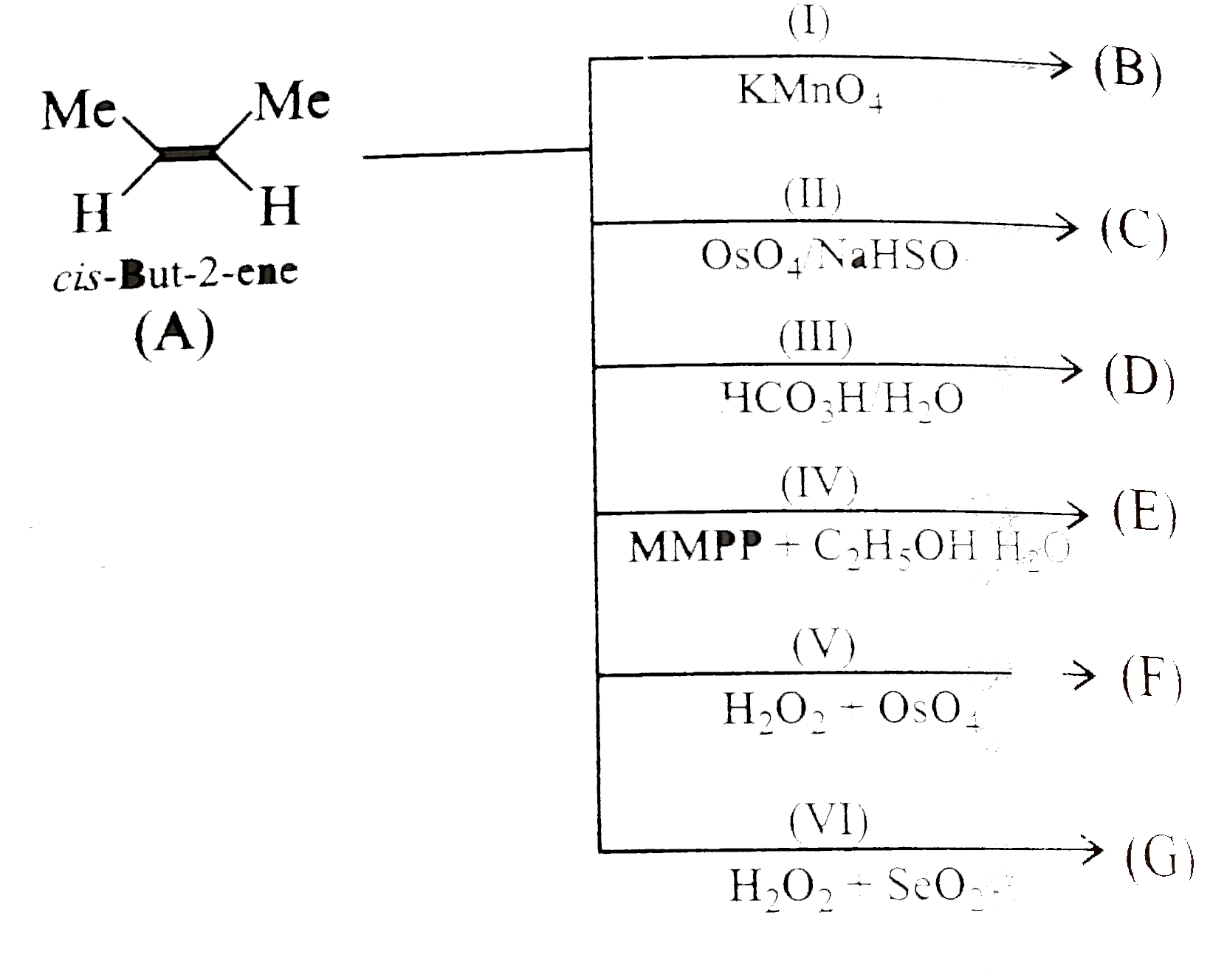
Which of the following are stereospecific reactions ?
View Solutionwhich of the following is not ?
View SolutionWhich of the following is the correct order of stability of the
following compounds ?
View SolutionR, S-configuration is a useful tool for determination of enantiomers, diastereomers and homomers. If configuration of all chiral centers are opposite then structures are enantiomers, if all chiral centers have same configuration then they are homomers and if some have same configuration and some have opposite configuration then they are diastereomers.

Which of the following is not diastereomer?
View SolutionWhich of the following compound give diastereomers when treated with Br2 in CCl4?
View Solution
